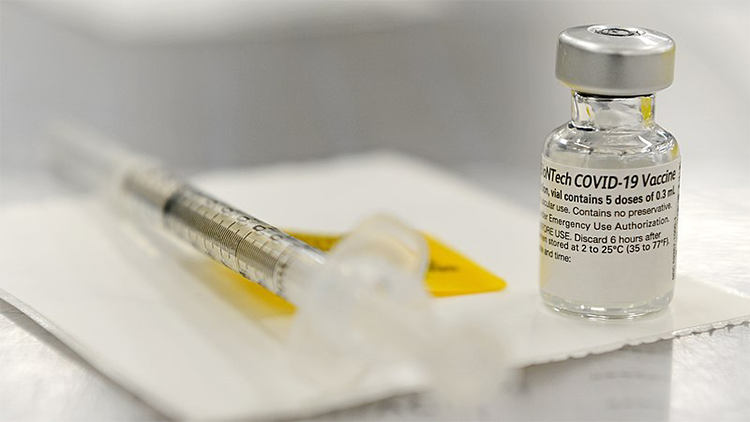- Have any questions? Contact us!
- info@dr-rath-foundation.org

Administering Zinc To COVID-19 Patients Could Help Their Recovery
March 12, 2021
COVID-19 VACCINES: Breakthrough Approach Or Unanticipated Health Risk?
March 15, 2021U.S. Government-Funded Study Concludes Risks Of COVID-19 Vaccines Not Being Adequately Disclosed

A recent study published in the International Journal of Clinical Practice examines whether sufficient literature exists to require clinicians to disclose the risk that receiving COVID-19 vaccines could sensitize people to more severe viral disease than if they were not vaccinated. Finding that adequate communication of this risk is unlikely to occur, the authors say it should be prominently disclosed to people taking part in COVID-19 vaccine trials as well as those vaccinated following regulatory approval. The study concludes that a specific, separate, informed consent form and demonstration of patient understanding of this risk is necessary in order to meet medical ethics standards.
Funded by a grant from the National Institute of Allergy and Infectious Diseases (NIAID), an organization that is part of the U.S. government’s National Institutes of Health, the study reviewed published literature to identify evidence that COVID-19 vaccines could worsen disease upon exposure to challenge or circulating virus. The authors examined clinical trial protocols for COVID-19 vaccines to determine if the risks were properly disclosed to participants.
The study found that vaccines designed to elicit neutralizing antibodies against COVID-19 may sensitize their recipients to more severe disease than if they were not vaccinated. Pointing out that vaccines previously developed for other coronavirus diseases such as Severe Acute Respiratory Syndrome (SARS) had failed to be approved, the authors describe how data suggest current vaccines may worsen COVID-19 via a phenomenon known as ‘antibody-dependent enhancement’ (ADE). This occurs when antibodies generated during an immune response unexpectedly and paradoxically enhance the entry of a virus into cells, and in some cases also its replication. The study authors describe this as a “serious mechanistic concern.”
The study states there is strong evidence that ADE is a “non-theoretical and compelling risk for COVID-19 vaccines” and that this risk is “obscured” in clinical trial protocols and participant consent forms. The result, the authors explain, is that patients are unlikely to understand the risk of accepting such vaccines, thus meaning that truly informed consent cannot be said to have been obtained.
The history of science is built on dissenting voices
It is regrettable that this study has been virtually ignored by the mainstream media. Seemingly, with a global effort underway to vaccinate the entire human population, including children, voices questioning the safety of the types of vaccines employed are effectively being silenced. The only analysis apparently now permitted is that current COVID-19 vaccines are ‘proven’ to be safe and offer the ‘only’ solution to the pandemic. Clearly, however, any scientific orthodoxy that depends on censorship for its survival will ultimately be doomed to failure.
The history of science is built on dissenting voices questioning the official narratives promoted by the status quo. Were this not the case, for example, mankind would still believe that the Earth lies at the center of the universe. Therefore, just as putting Galileo Galilei under house arrest in the 17th century couldn’t prevent his scientific contributions to astronomy from becoming accepted, nor either will eliminating dissenting voices from the mainstream media’s coverage of the COVID-19 pandemic put an end to questions about the safety of coronavirus vaccines. Meantime, with public awareness growing regarding the role of vitamin C and other micronutrients in strengthening immunity and blocking the interaction between the binding site of the coronavirus ‘spike’ and its cellular ‘entry door’ into human cells, the pharmaceutical business with patented vaccines and drugs will increasingly come under threat.
Notably, therefore, the Norwegian Medicines Agency has recently set up an expert group to review 102 deaths amongst elderly people following vaccination against COVID-19. A number of these deaths are reportedly linked to use of Pfizer’s mRNA-based vaccine. In addition, Denmark, Iceland, and Norway have suspended use of AstraZeneca’s COVID-19 vaccine after reports of severe blood clots in some of those who received it. Given the haste with which COVID-19 vaccines were developed and approved, further developments of this type seem almost certain.




